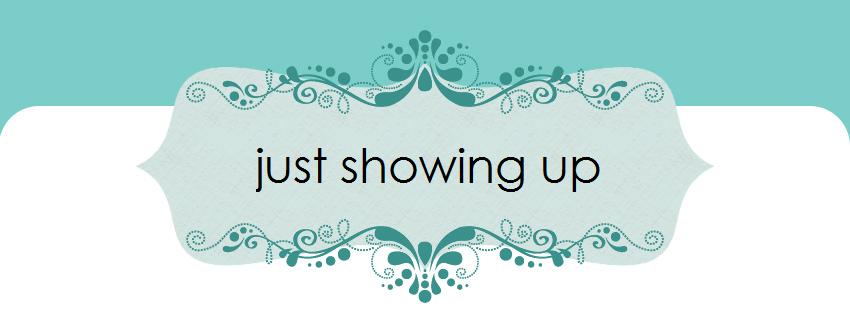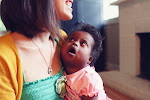Sometimes I wonder what Yosef and Biniam will think when they someday return to Ethiopia for a visit. This is a great recent article about one adoptive mom's experience taking her daughter back. (Melissa has written so many amazing articles and books, and is super nice too!)
Finding My Daughter's Roots
By Melissa Fay Greene
Published: January 13, 2008
With thousands of foreign adoptions taking place in the U.S. each year, many parents want to give their children a connection to their pasts. Writer Melissa Fay Greene recently took her daughter Helen, 10, to visit her native Ethiopia.
It's been five years since my daughter left an orphanage in Addis Ababa and joined our family in Atlanta. Today Helen is a top soccer player, a flutist and the student president of her school. She has gained much, but much is in danger of being lost: her fluency in Amharic, her Ethiopian manners, her sense of her own history and culture.
As we pack for our 10-day trip to Ethiopia, I realize that I have no idea what my daughter is expecting to find there.
“I want to do lots of shopping!” Helen says.
“Addis Ababa is not exactly a shopping mecca,” I warn. “There’s no Target.” I want to ask if she remembers the orphanage or the beggars who line the streets. “I’m packing my iPod!” Helen calls.
Arriving at the airport in Ethiopia’s capital a few days later, we descend by creaky rental van into the city, where cars compete for right-of-way with herds of livestock. Unemployed, sick and handicapped people limp or lie on the sidewalks and median strips. Homeless children dash alongside the heavy traffic.
“This scares me,” Helen murmurs. “I don’t feel like I came from here.”
Suddenly, a tall boy leans close to the window and moans in English, “Stomach zero.”
“Give! Mommy, give!” Helen cries.
She ransacks her backpack and finds a bag of bite-size Milky Ways. At the next stoplight, she serves a gold-wrapped candy to another barefoot boy who approaches. He examines it, smiles and requests another “for brother.” The van begins to accelerate. “He needs a candy for his brother!” Helen yells. “Please stop! Let me out!” But there is no stopping. My daughter falls against me, weeping.
UNICEF estimates that 4.6 million Ethiopian children have lost one or both parents, many to HIV/AIDS. Tens of thousands of street children forage in the capital; hundreds more live underground in sewers and tunnels. Some find shelter at orphanages like the one we visit on Helen’s first day back in Ethiopia.
When we arrive, the orphan girls surround Helen. They want to examine her watch and purse, peer through her camera and try her headphones. Then they all sit down for a chat despite Helen’s protests that she can’t really understand what the girls are saying. She does discern that they all need shoes: pink Crocs just like hers. With my permission, she leads an expedition beyond the orphanage gates to a kiosk, where she purchases 30 pairs of fake Crocs for 11 birr (about $1.50) each.
Over the course of our visit, Helen falls in love. Each morning, 3-year-old Binyam runs to her, squats and makes a fierce smile. She lifts and carries him for hours.
“We have to adopt him,” Helen whispers one day as he naps. “He needs me.”
“I know, sweetheart,” I say, “but we can’t. Maybe when you’re a grown-up, you’ll come back to Ethiopia to adopt.”
She shakes her head. Tears start to roll. “Binyam will be too old then.” In happier moments, Helen soaks up Ethiopia. She understands more Amharic every day. She claps at dance performances and races up the field in soccer games at the orphanage. She sits at attention beside the van window, holding birr in one hand, candy in the other. If beggars don’t approach the car when we stop, Helen taps on the glass to catch their attention.
Before our trip, Helen’s dreams of adult life included Olympic competition, a modeling career and the practice of medicine. Now she says, “I’m coming back when I’m older to build a beautiful shelter for the beggars, with teachers and doctors and pretty bedrooms.”
Helen did enjoy shopping in Addis Ababa, but not for herself. When she looks to the future, it’s with thoughts of how she will make life better for others. And when she sobs inconsolably on our last day, it is for the orphanage girls and for Binyam—sweet children with histories like her own, but with futures that look far less promising.
Tuesday, January 22, 2008
Subscribe to:
Post Comments (Atom)














6 comments:
This is a great article! I know i just read this somewhere but i'm drawing a complete blank as to WHERE it was! Parade? Newspaper?
Yep, Parade!
Wow that was awesome! Thanks for sharing!
what an amazing article. thanks for sharing with us.
I read this in Parade too, and of course thought of you. I'm glad you found it.
See you soon!?
Thank you so much for your wonderful blog & for sharing your life with us! I can't wait to adopt one day, and I love hearing about your experiences. Keep 'em coming!
Post a Comment